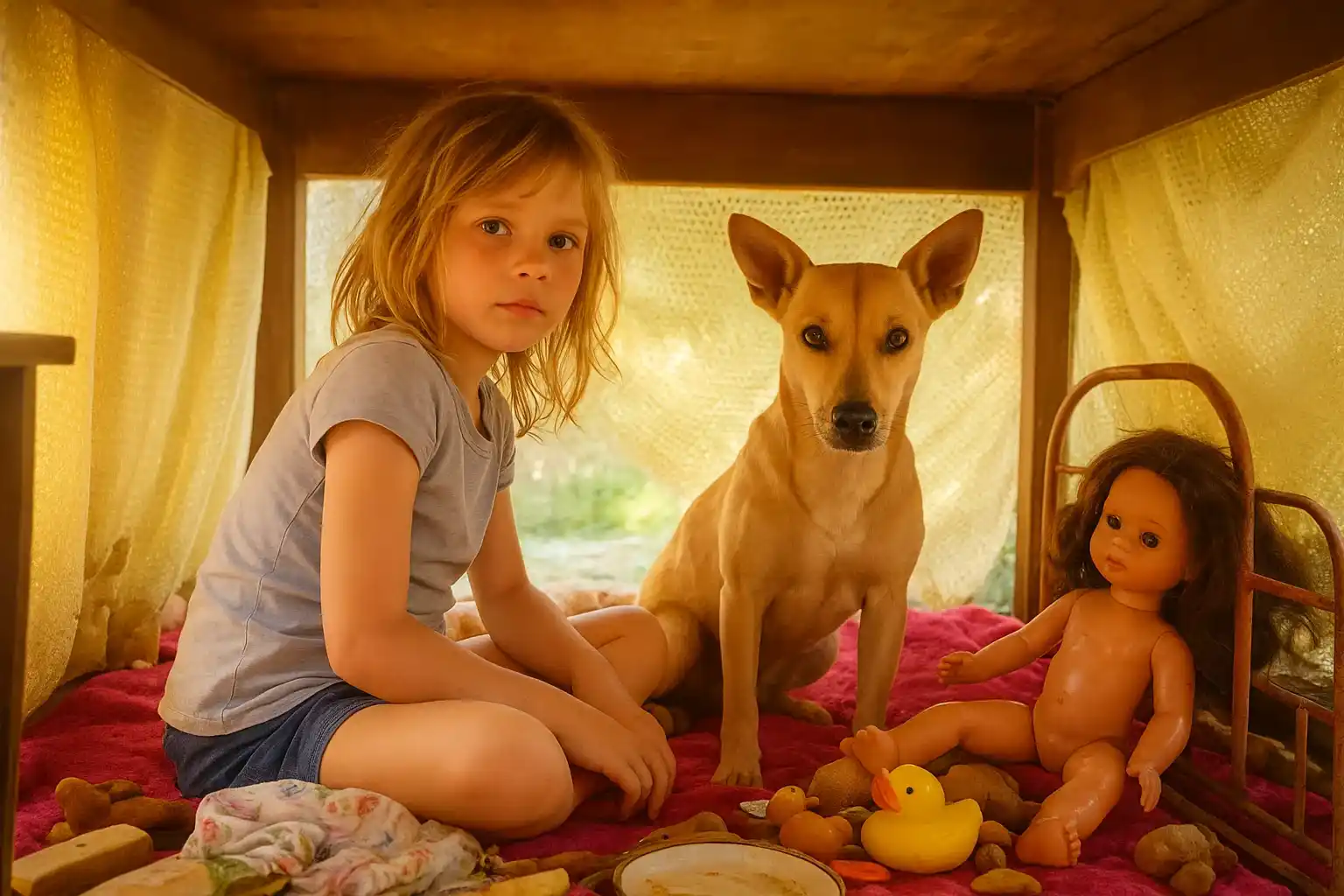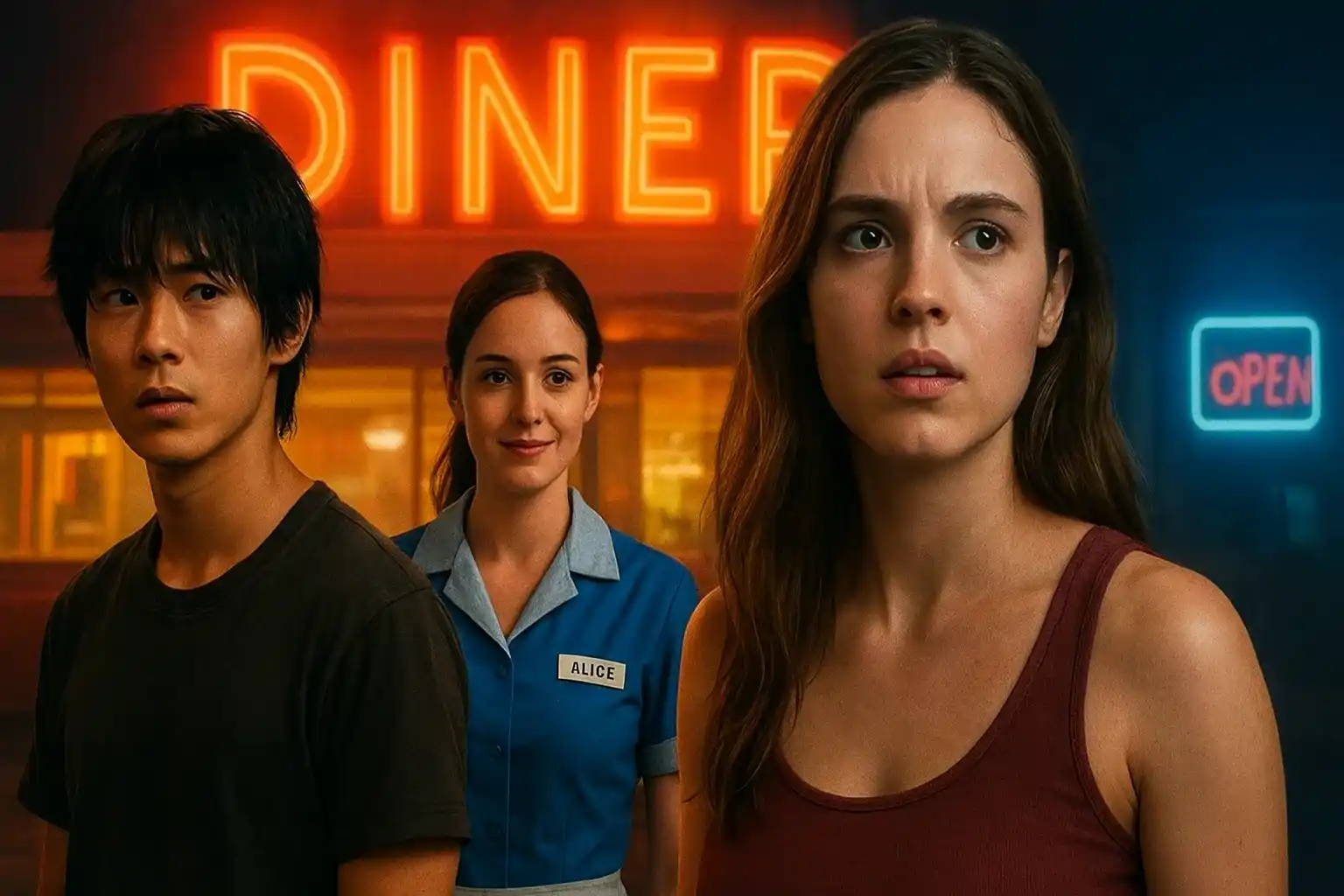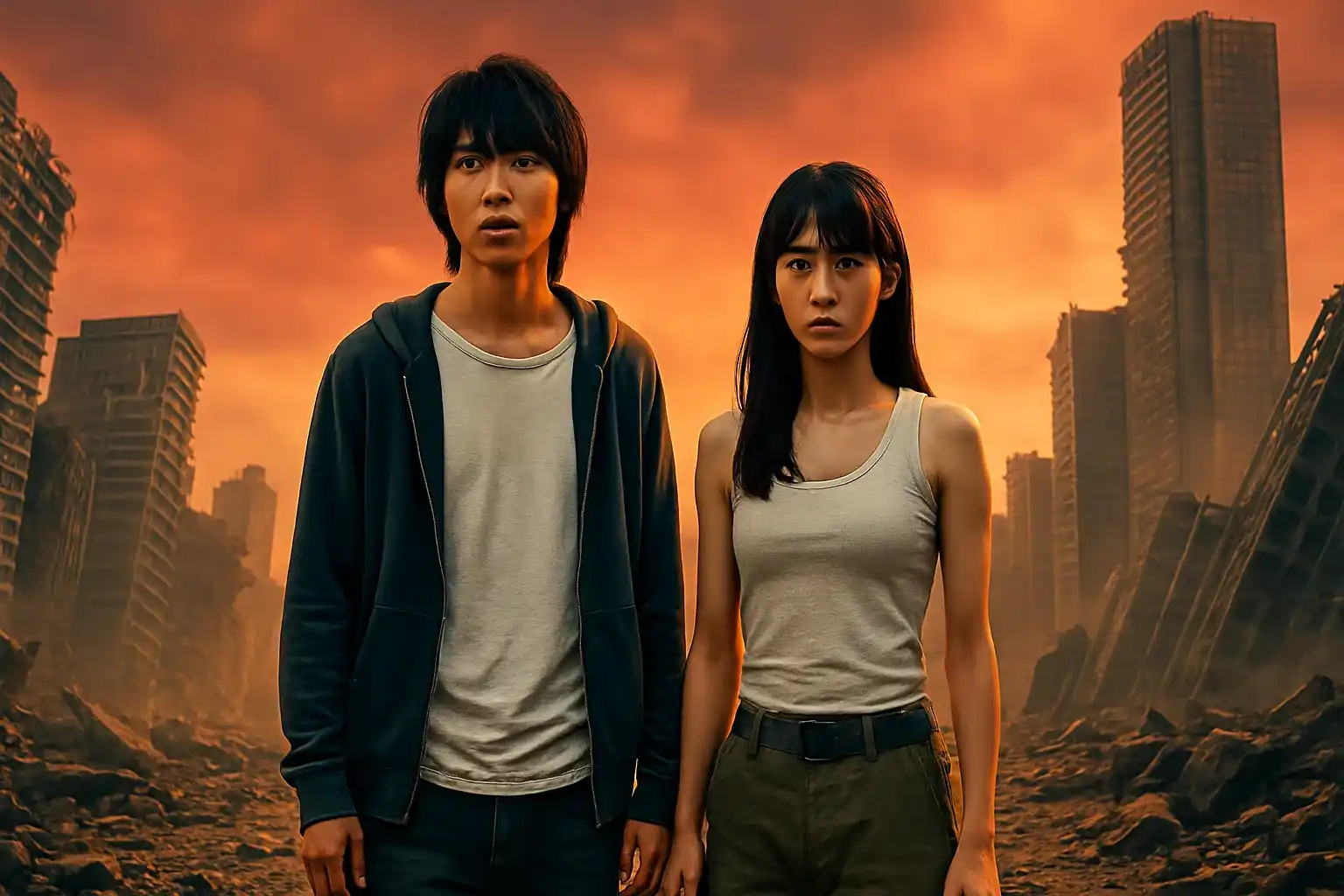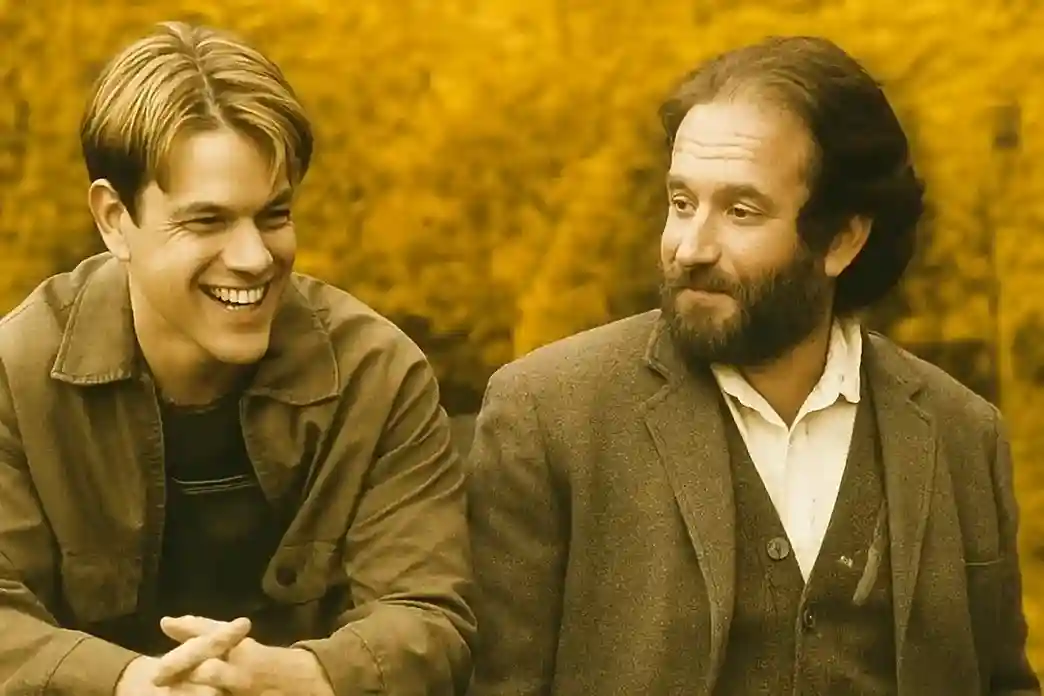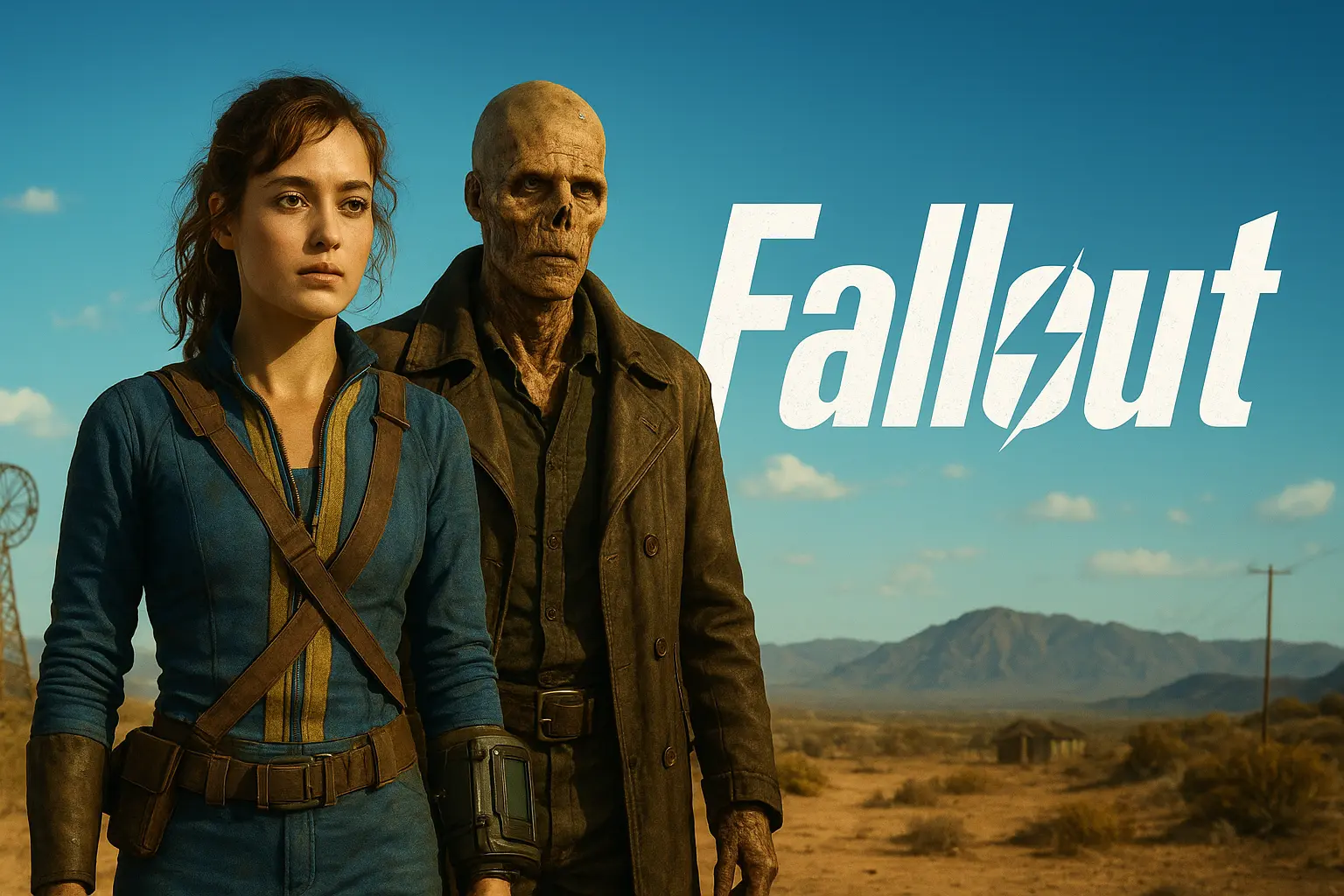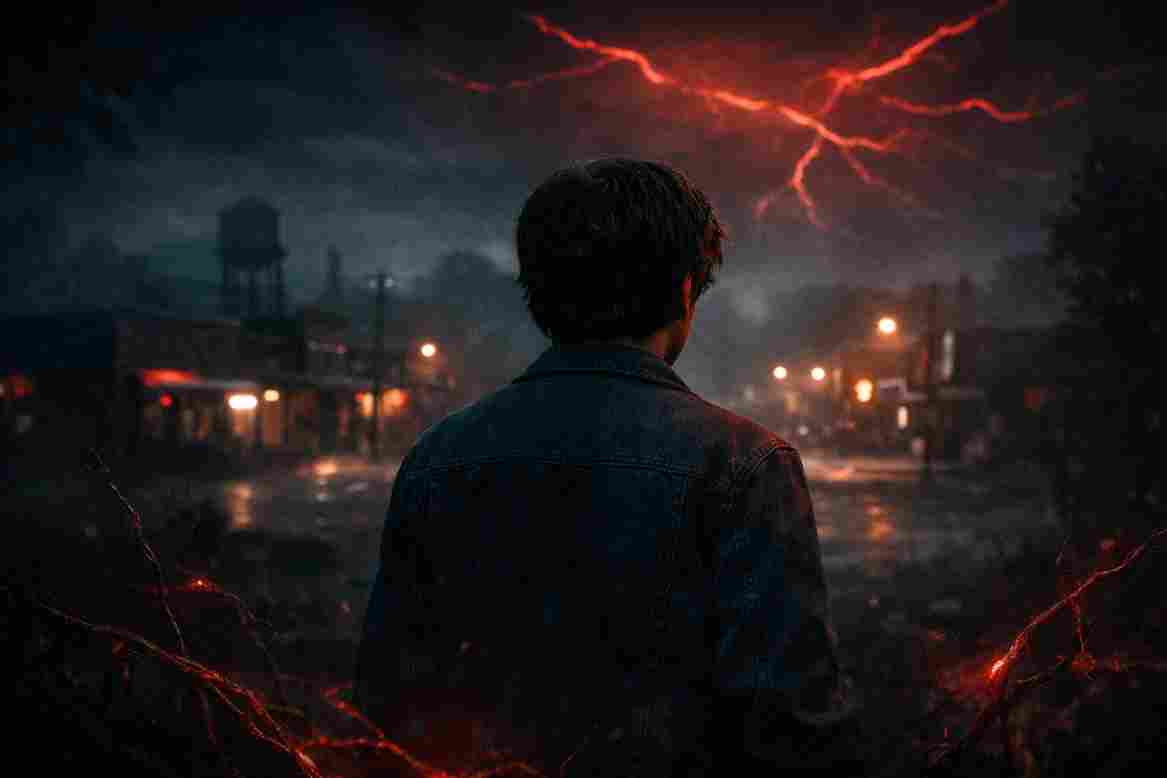Don’t Let’s Go to the Dogs Tonight Review: Childhood, Chaos, and a World on the Edge
Table of Contents
You know how some films stick with you not because of big action scenes or wild plot twists, but because they quietly sneak into your emotions and stay there? That’s exactly what happened when I watched Don’t Let’s Go to the Dogs Tonight. And honestly, that’s why I’m sitting down to write this don’t let’s go to the dogs tonight review. Because this movie isn’t just a film you watch—it’s one you feel.
The first thing I have to say is this: yes, the title is awkward. It’s clunky, long, and doesn’t exactly roll off the tongue. If I saw it on a streaming list, I’d probably scroll past it thinking it was a quirky indie comedy about dogs. But nope—this is something entirely different. And once you get past that strange title, you realize you’re in the hands of a story that’s heavy, haunting, and deeply human.
The film is based on Alexandra Fuller’s memoir of the same name. Fuller grew up in Rhodesia (what’s now Zimbabwe) during the collapse of colonial rule, and she wrote about her childhood from the perspective of a little girl caught in a world unraveling. That perspective is what makes both the book and the movie so unusual. Most war and colonial-era films are told from an adult lens, with hindsight and political clarity. Here, though, we’re seeing everything through a child’s eyes. And that makes it both innocent and brutal at the same time.
A Story Through a Child’s Gaze
At the heart of this don’t let’s go to the dogs tonight review is the way the film sticks to Alexandra—nicknamed Bobo—as its emotional compass. She’s played by newcomer Lexi Venter, who is, in a word, incredible. This is a kid who had never acted before, and yet she manages to capture the raw, restless, wild energy of a child growing up in a chaotic, dangerous world. Her performance isn’t polished in the Hollywood sense—it’s rough, instinctive, and completely real.
Bobo’s gaze shapes the entire film. We don’t just see the collapse of Rhodesia as a news event; we see it filtered through her confusion, her misheard conversations, and her half-understood experiences. She parrots the words of the adults around her—sometimes funny, sometimes chilling—without knowing what they mean. At one point, she repeats that “terrorists” might come to raid their house, but she delivers it in the same tone another kid might say “monsters are under my bed.” That blend of innocence and violence is what makes the movie so unsettling and powerful.
This is not your typical “colonial Africa” movie. If you’re expecting sweeping sunsets, majestic elephants, and glossy postcard visuals, you’ll be disappointed. Director Embeth Davidtz avoids all those clichés. Instead, she zeroes in on the sensory details a child would remember: the buzz of insects at night, the heat radiating off the land, the lullabies sung by Bobo’s nanny, Sarah. It’s a film made up of textures and fragments, more like memory than like a straightforward historical drama.
Embeth Davidtz Steps Behind the Camera
One of the biggest surprises of this don’t let’s go to the dogs tonight review is how strong Davidtz is as a first-time director. We already know her as a gifted actress—she moved audiences as Helen Hirsch in Schindler’s List, and she’s popped up in films and TV over the years. But here she takes a huge creative risk: not only does she direct, she also plays Nicola, Bobo’s mother.
Now, let me be honest. At first, I thought this was going to be self-indulgent. The role of Nicola is showy: she’s fiery, unhinged, and larger-than-life. This is a woman who sleeps with a machine gun by her bed, crushes ticks with her bare heel, and slowly loses her grip as her world collapses. Casting herself in that part felt like it could’ve been a vanity move. But it wasn’t. Davidtz nails it. She embodies the contradictions of a woman who’s tough as nails on the outside but brittle and broken on the inside. You can’t take your eyes off her, even when she’s at her most destructive.
It’s worth pointing out that Davidtz herself grew up in South Africa, right next door to where this story takes place. You can feel that personal connection in the way she frames things. She doesn’t paint over the ugliness or sanitize the history. Instead, she leans into the uncomfortable truths—the racism, the classism, the desperation of people trying to cling to privilege as the world changes around them.
Childhood in a Country at War
This wouldn’t be a proper don’t let’s go to the dogs tonight review without digging into how the film portrays Rhodesia during this time. And honestly, it’s fascinating. The movie takes place during the run-up to the 1980 elections, when Robert Mugabe and the Black majority were fighting for control of the country. For white settler families like Bobo’s, that meant living in constant fear of raids, attacks, and political upheaval.
But here’s the tricky part: the film doesn’t ask us to feel sorry for them. Instead, it shows the contradictions of their life. Bobo’s family has land, privilege, and servants. She’s cared for deeply by her nanny Sarah, a Black woman who loves her but also calls her out when she bosses other kids around. At the same time, Bobo’s grandparents spout racist nonsense about “breeding” being more important than money, all within earshot of the very people they’re demeaning.
The brilliance of telling this through Bobo’s eyes is that she doesn’t filter anything. She just repeats what she hears. Sometimes it’s funny, like when she mistakes her parents’ bedroom noises for “moving furniture with their clothes off.” Sometimes it’s horrifying, like when she blurts out details about her sister’s abuse in front of the whole family. Childhood innocence strips away the polite masks adults like to wear, and what’s left is the raw truth.
Memory Over Chronology
One thing that might throw some people off is the film’s structure. It doesn’t tell the story in a neat, linear way. Instead, it’s impressionistic—like a patchwork quilt of memories. Some scenes are crystal clear; others are hazy and half-remembered. It feels like listening to someone talk about their childhood, where moments bleed into each other without strict order.
For me, that worked. In this don’t let’s go to the dogs tonight review, I’d argue that this fractured structure mirrors exactly what the story is about. Childhood is messy. Trauma is messy. You don’t remember things in a perfect timeline—you remember flashes, sounds, smells, and feelings. That’s the lens Davidtz uses, and it gives the movie a dreamlike quality that lingers long after the credits roll.
Not a Comfortable Watch—And That’s the Point
Let me be clear: this isn’t a cozy movie-night kind of film. It’s heavy, unsettling, and sometimes frustrating. Nicola’s unraveling can be hard to watch. The political tension is always humming in the background, and it’s not resolved in a neat or tidy way. And some moments—especially around race and violence—will absolutely make you squirm.
But that’s why the film matters. In this don’t let’s go to the dogs tonight review, I think the biggest takeaway is that Davidtz doesn’t try to soften the story. She embraces the discomfort. She shows a world that was unjust and unstable, seen through the innocent but brutally honest lens of a child.
Final Thoughts
So, would I recommend it? Absolutely—but with a caveat. If you’re looking for easy entertainment, this isn’t it. But if you want a film that challenges you, that makes you think about history, privilege, and memory in a fresh way, Don’t Let’s Go to the Dogs Tonight is worth your time.
What makes it so powerful is its honesty. It doesn’t let you look away. It doesn’t give you the sweeping, romantic Africa we’ve seen in so many other movies. Instead, it gives you the messy, complicated truth—filtered through the wide, unblinking eyes of a little girl who doesn’t fully understand what’s happening around her.
At the end of the day, this don’t let’s go to the dogs tonight review comes down to one thing: it’s a film about childhood in a broken world, about love tangled up with fear, and about the ways memory can both protect us and betray us. It may not be perfect, but it’s brave, raw, and unforgettable.
And maybe that strange, clunky title makes sense after all—because once you’ve seen it, you realize this is a story that could only be told this way.
